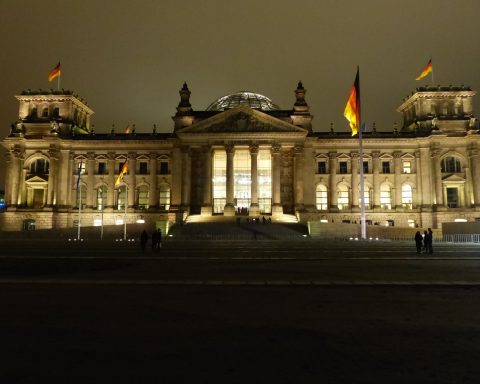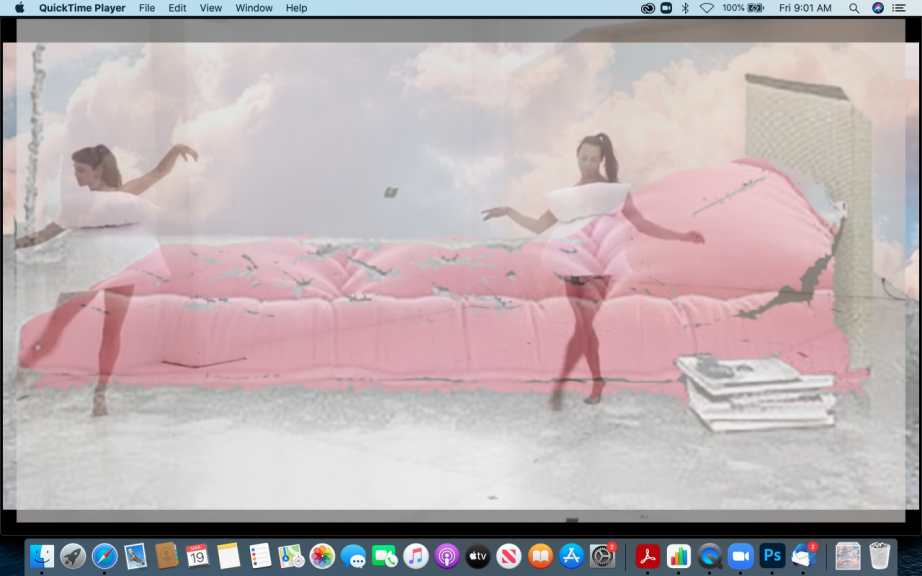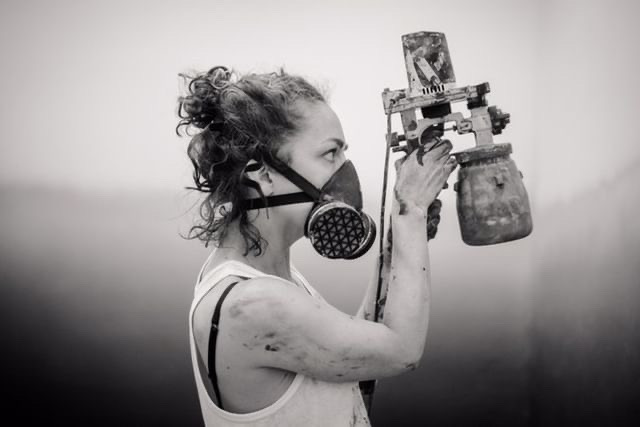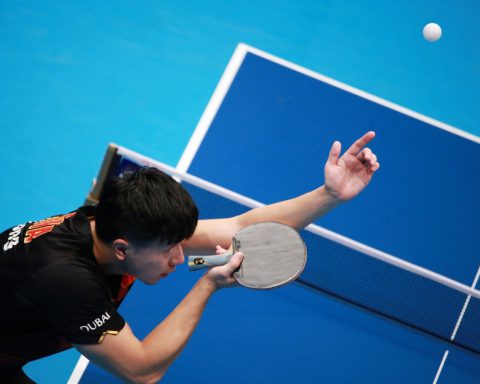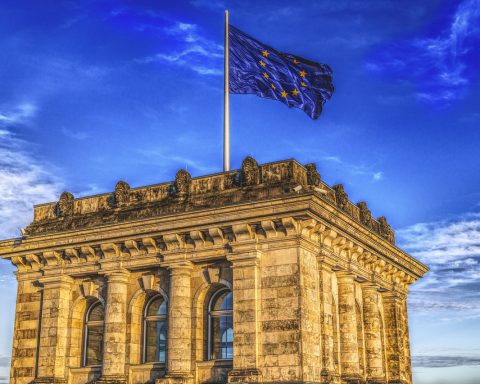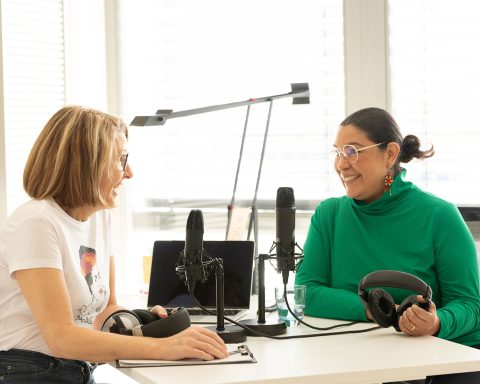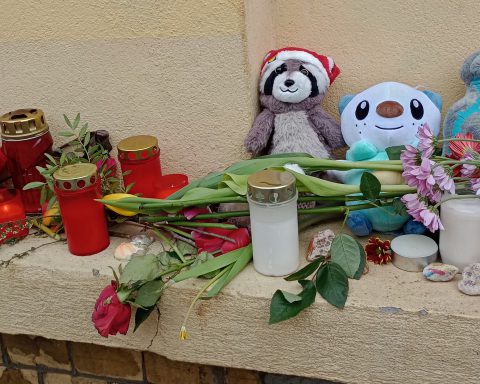For the first time ever, all foreigners and naturalized Germans residing in Leipzig for at least 3 months will be able to vote in the Leipzig Migrants’ Council selection process. The council has an advisory role to Stadt Leipzig on matters concerning the city’s international community. If you’re eligible to vote, you should have received a letter with instructions (otherwise, contact Stadt Leipzig’s Referat für Migration und Integration). The voting is open from 8 a.m. on March 22nd to 8 a.m. on March 29th, 2021, and applies to candidates split up into 8 geographic regions (here’s a list of all the candidates by region). The person with the most votes from each region will be selected to represent that region. The Leipzig City Council then appoints the next two with the most votes for the remaining positions, for a total of 10 representatives.
In its ongoing “Meet the Candidates” series, LeipGlo is running these Q&A’s with Leipzig Migrants’ Council candidates who reached out to us. (SEE ALL PUBLISHED ONES HERE.) We are no longer accepting submissions for this voting cycle.
Alejandro López Roldán, Colombia
Geographic region for vote: Süd- und Mittelamerika
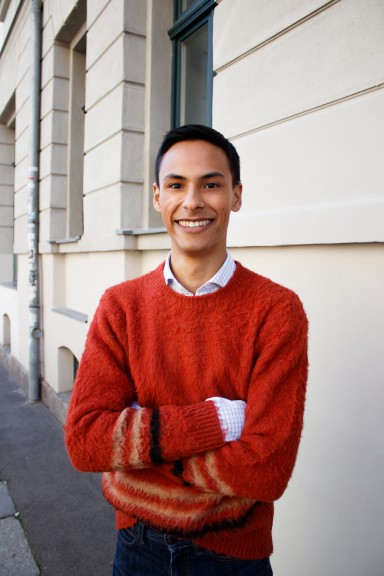
Who are you? Tell us a little bit about you.
Hi there! My name is Alejandro, I’m 24 years old and I’ve been in Leipzig since 2015. I’m a born and raised Colombian from a family of four. I studied media and communications here in Leipzig and I’m working in public relations while getting my Master’s at the HTWK. I love art, languages and dancing to Latin music.
When and why did you move to Leipzig?
I came to Leipzig in 2015, right after graduating from high school, when I was 18. I chose Leipzig because they offer a great media and communications program, and fell in love with the city immediately.
The great opportunity we have here to meet people from all over the world really struck me and is still one of the reasons I’m happy to call myself a Leipziger.
Why are you running for the Leipzig Migrants’ Council? What are your goals?
I would like to represent the voices of the migrants of Leipzig towards the city council. As a born and raised Colombian, I had the opportunity to be confronted with different challenges that my country and the society there face. Due to this, I believe I have a sense of and the will to understand the realities other people live in and also to fight to change things for the better.
I want to be an ear and a strong voice that will set a precedent for how valuable and tough we migrants are. We are capable of so much and everyone should know about it!
Have you been involved in politics before? If so, where and in what capacity?
Until now, my focus has been more on the social matter of issues. I worked for a couple of years with kids from conflict regions in Colombia and therefore I’ve seen how politics directly influence our lives for the better or for the worse.
I would like to now apply the knowledge I got from these past experiences into the Migrant’s Council in order to bring the city forward and make our lives in Leipzig better every day.
What do you wish was different in Leipzig for foreigners?
I think they are multiple aspects I would like to change that would have a positive impact on our lives. Two of them would be:
- Eliminate discrimination and racism from governmental institutions: This is something that nobody can avoid due to the high bureaucracy we have in Germany and it represents a very delicate issue. To provoke a change here, I would like to emphasize having compulsory courses for state workers of the city, in which topics like diversity, racism and xenophobia are handled. I believe this is a way of attacking the issue at its root.
- Investing on projects that work in favor of integration: There are projects like the “Willkommenszentrum” and other third-party associations that offer support for migrants in various areas. Psychological consultations, translation services, know-how regarding bureaucracy, accompanying people to appointments, etc. All of these are crucial to ensure that we have access to our bare necessities as citizens. Therefore, I would like to fight for an increase in the budget for these areas and also for better communication regarding the availability of these services.
Mohammad Khaitou, Syria
Geographic region for vote: West- und Zentralasien
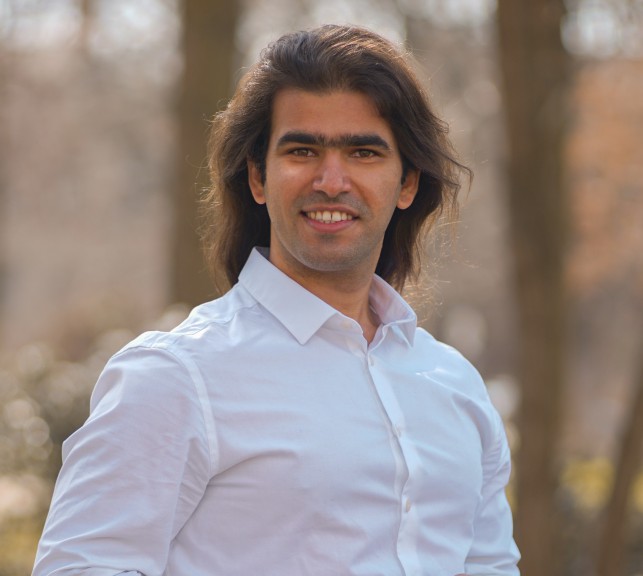
Who are you? Tell us a little bit about you.
I am Mohammad Khaitou from Syria, an athlete, musician, and social activist.
In 2015, I arrived in Germany as a refugee. Communication with people was the first challenge I faced because my German language skills were limited, therefore I started to communicate using music. To engage more in the community, I volunteered in many societies and organizations; the main aim is to support people. Currently, I work in public relations, communications, and project development.
When and why did you move to Leipzig?
I moved to Leipzig in April 2016, the whole process was without prior planning. My friend advised me to settle in Leipzig, a city covered with green and having one of the oldest universities in Germany that attracted students from different countries.
Leipzig is an emerging and rapidly developing city. Some people liken it to Paris or Berlin. I got a chance to make friends with some wonderful people. Those reasons made me fall in love with this city and stay in it.
Why are you running for the Leipzig Migrants’ Council? What are your goals?
As a refugee, I faced many difficulties, but I tried to overcome them. I became aware of the difficulties that immigrants suffer in this society.
The mission that I entrusted myself with is to support and assist everyone I can help. The most beautiful thing in this life is that we can draw joy on the faces of others and reduce the burdens. This has encouraged me to participate in the Migrants’ Council of Leipzig.
My goals are to:
- Improve immigrants’ access to the labor market;
- Provide immigrants with updated news and resolutions, such as news from the job center or social welfare office and information about public transportation;
- Support families in finding kindergarten and schools for their kids;
- Support immigrants in learning their mother tongue alongside being professional speakers in the German language;
- Support women’s engagement and participation in social services and public events;
- Secure financial support for social projects to achieve communication between immigrants and host communities to exchange cultures and knowledge;
- Call for the maintenance and construction of outdoor fitness areas all over Leipzig (Calisthenics-Plätze) for free use for everyone.
Have you been involved in politics before? If so, where and in what capacity?
In 2018, I volunteered in federal work for the association Interaction Leipzig. There, I got to know people of different nationalities and cultures. I created projects that sought to get people to know each other, and how they could get the needed support. I was able to establish a network of people working in the non-profit organization not only in Leipzig, but expanded to cities in other European Union countries.
I participated in many Erasmus programs. In these programs, we talked about refugees and the difficulties they suffer in Italy, Spain, and Germany, and how the mechanism of work for foreigners is in these countries. I filmed a documentary with a group of people of different nationalities created about life in Syria before the war and the difficulties immigrants face in their new country, where the language and culture differ from what they are used to.
Also, through cooperation with Die Villa Leipzig, I was able to form a multinational orchestra. As for my work at Wir sind Paten, I am in direct contact with the government and therefore supporting people in handling bureaucratic government routines and whom to deal with.
What do you wish was different in Leipzig for foreigners?
I hope that the stereotypes about immigrants in Leipzig will change. In all societies, there is the good and there is the bad.
I hope that all people will be treated the same without racial discrimination. Regardless of their gender, religion, color, and country.
We all live in this city, and our goal is to live together in peace and to build and develop this city together. Multi-nationality is evidence of the confidence, awareness, and openness of society. It is nice to accept others as they are, not as we want them to be.
What is the best, worst or most memorable experience you have had as a foreigner in Leipzig? (Optional)
There are many good and bad experiences. A good experience is getting to know amazing people.
The bad experience: In the summer of 2019, there was a festival in one of the areas of Leipzig and there were many organizations and NGOs. I was asked by the festival organizers to go up on stage with other NGOs to introduce people there to our work and what we do, but as soon as I got on the stage people started to show inappropriate racist behavior and started making sounds like mockery and laughter.
This thing motivated me to stand strong against racism.
Grzegorz Wojslaw, Poland
Geographic region for vote: Süd- und Osteuropa

Who are you? Tell us a little bit about you.
Politically independent, socially engaged, knowledgeable in public affairs, but with the awareness that I do not know everything for every topic, so prone to dialogue and conversation with everyone.
My educational background is heterogeneous: I studied philosophy, environmental law and management as well as public affairs in Poland and the USA. My professional experience is diverse too: I worked as a teacher, academic researcher, librarian, and also in non-profits. I have been actively involved in common-good undertakings since my student days in Poland. In Leipzig for years, with and for migrants.
I really like to spend time in nature, for example hiking. I like chess. Geography, too.
When and why did you move to Leipzig?
Fall 2009. My wife Tracie found a job at Leipzig University. So we came here with our, at that time, 2-year-old son Kasper. Our daughter Zelda was born here in Leipzig a few years later.
Why are you running for the Leipzig Migrants’ Council? What are your goals?
The broadest goal is supporting the dialogue between anyone in our city and making Leipzig a better place to live, work, raise children, retire, and also have fun, for all of us. I will actively strive for the implementation of grassroots postulates of migrants in Leipzig; encourage migrants to apply for other advisory councils and public bodies in Leipzig; and postulate the creation of a program enabling wider employment of migrants in city administration and institutions.
One of my priorities is to support families struggling with obstacles in their contact with offices and in their access to high-quality education. We need quick and transparent decisions on admissions to kindergartens; to encourage talented migrant children to continue their education at the gymnasium and university levels; and to combat all forms of non-tolerance and discrimination in schools.
I will demand that the topics of real respect for labor rights (including the special rights of European Union citizens and cross-border workers) and equal access to work for migrants be one of the first priorities.
Have you been involved in politics before? If so, where and in what capacity?
From time to time. For example, many years ago, in 1990, I was elected to the first democratically chosen city council in my native city of Tychy. I represented a group of people involved in grassroots environmental protection. At that time I was one of only a few environmentally-oriented city council members across Poland.
By the way, I think that the Migrants’ Council should not be a typical political body with party clashes and ideological struggles. The Council should have a broader orientation and be focused on the creation and nurturing of a space of tolerance and dialogue for everyone.
What do you wish was different in Leipzig for foreigners?
Foreigners should have a real opportunity to be more involved in various aspects of social, cultural, economic, and political life in our city. This can mean different things for different people but that is okay, because we are different.
What is the best, worst or most memorable experience you have had as a foreigner in Leipzig? (Optional)
I do not memorize bad experiences. In general, I am a future-oriented person.


